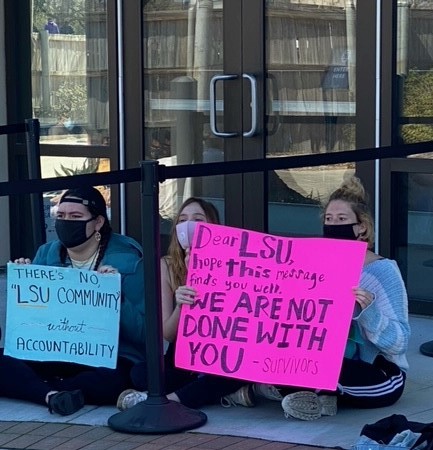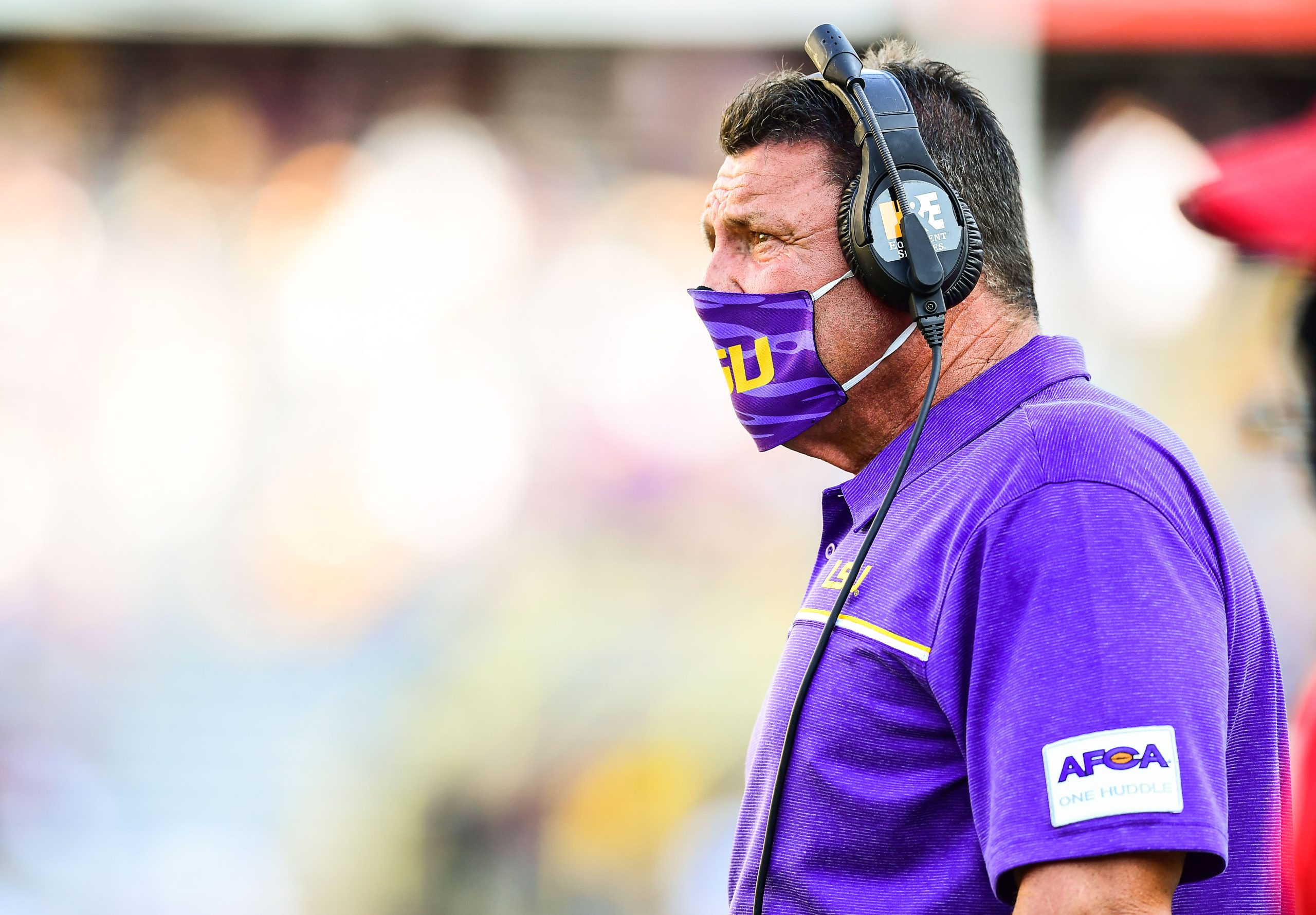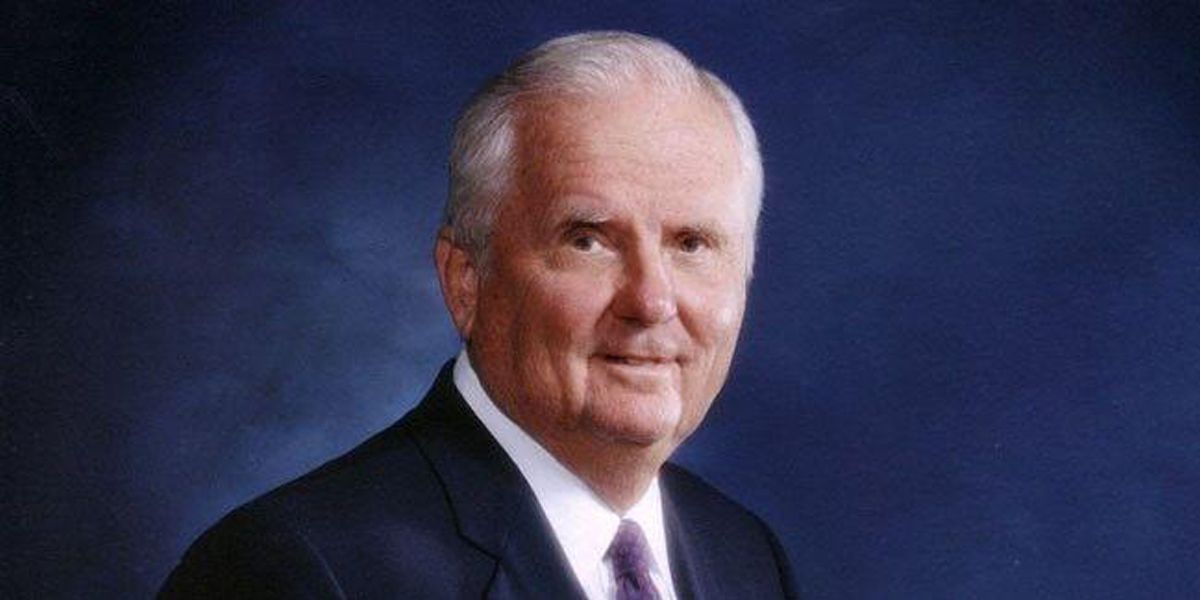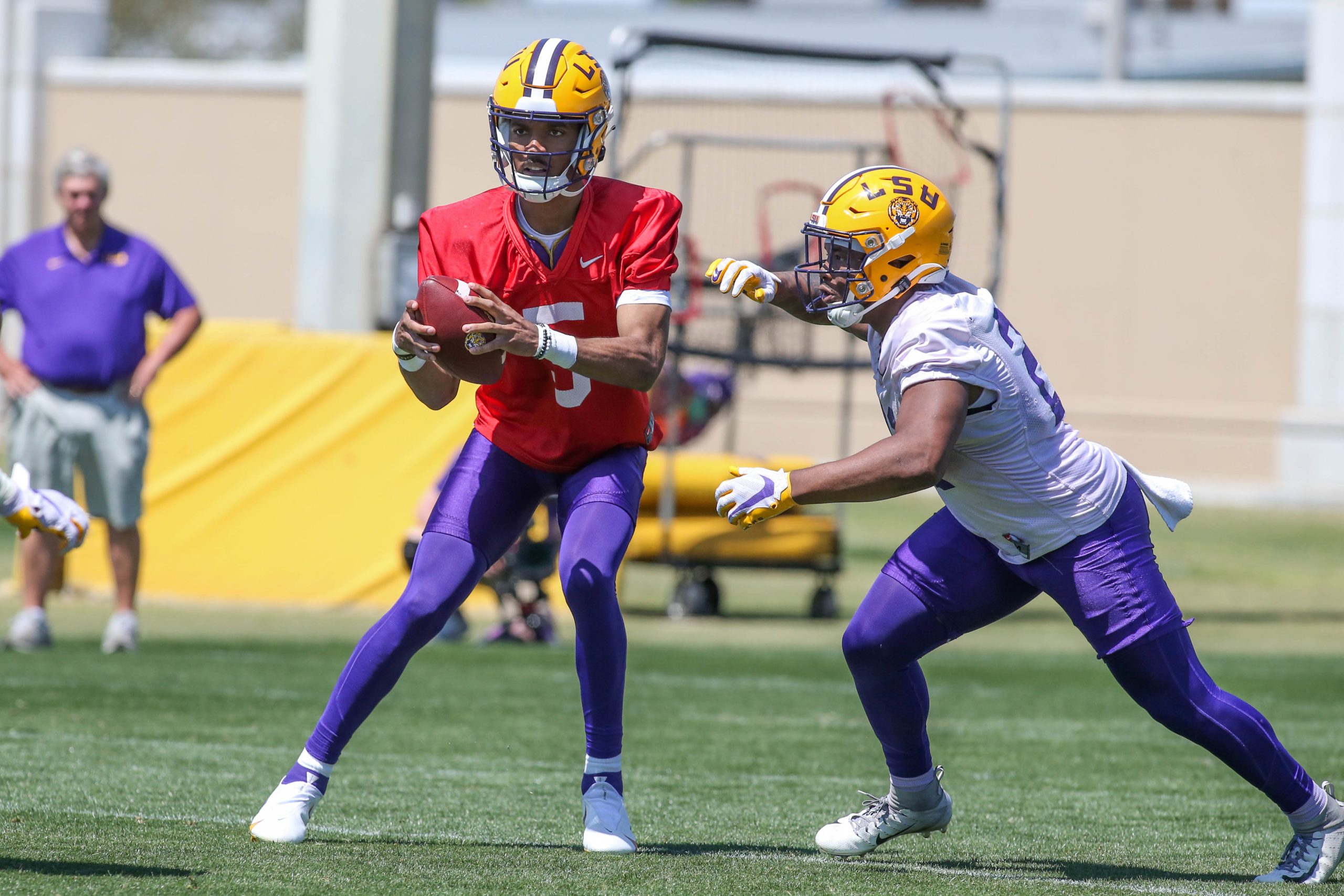
College football, especially in the SEC, has been a badge of honor in the South for decades.
The rest of the country, for justifiable reasons, doesn’t understand the South’s passion for a sport that’s part of the daily fabric where the game binds all demographics of white and black, rich and poor, metro and rural.
In California, they don’t get that a vacation home in the South is a RV that parks in the fall outside a college stadium on a Thursday afternoon and doesn’t leave until noon Sunday.
In New York, they can’t comprehend getting upset if an 18-year old top high school prospect commits to sign with a college program, then decommits to sign with another. Or even worse, an in-state prospect signing with an out-of-state school.
In Minnesota, they shake their heads when an SEC school fires a head football coach two seasons after he wins a national championship.
The South says to everyone who ain’t us that’s just who we are, it’s the way we roll, the rest of y’all don’t get it and we don’t care if you don’t.
It’s funny and amusing and charming until it isn’t.
Until it’s absolutely, unequivocally nauseating.
Like LSU receiving a 144-page report last Friday from a law firm it hired, Texas-based Husch Blackwell, to dissect the school’s continued Title IX failures to properly investigate years of domestic abuse and sexual violence allegations committed by football players.
Or having that report and a 33-page investigation from 2013 by Taylor Porter (the school’s outside law firm) that revealed the head coach of the school’s 2007 national championship football team, the guy portrayed as a family man with a loveable, quirky personality, was just an aging pick-up artist with a bad dye job who repeatedly hit on student workers in his own football office.
Both damning reports made LSU appear to be the undisputed champion of winning-at-all-costs. Anyone reading those reports to completion will have to take a long, hot shower just to wash off the sleaze.
It was jaw-dropping collaborative testimonies from witnesses who saw former LSU football receiver Drake Davis repeatedly choking and hitting Tigers’ women’s tennis player Jade Lewis on several occasions. There were details of running back Derrius Guice’s two alleged rapes including one of another women’s tennis player and also him taking a picture of nude, drunk LSU football office student worker and how he received no punishment whatsoever.
And there was page after page of other incidents and systematic breakdowns in the reporting and the investigations and the number of cases closed with victims choosing not to testify because they feared a public backlash.
Did current LSU football head coach Ed Orgeron know about all or some of the incidents?
Certainly, especially when Guice grabbed his crotch and propositioned a 70-year old grandmother employed as a Superdome security guard at the 2017 Louisiana high school championship football games.
But Orgeron, like just about all college head coaches, is basically told to butt out once an incident has been reported and being investigated. It’s up to the school to inform Orgeron when he can or can’t play the accused player.
Eventually, Orgeron or any head coach can suspend a player or kick him off the team. But he has to let the school first work through the investigative steps.
But for all the player incidents in the report which alone were enough for LSU interim president Tom Galligan to say “as an institution we failed to live up to our commitments, we let some of those were depending on us down,” the detailed allegations against Miles (which he denies) in both reports took the shame level off the charts.
When head coaches in all sports sell their programs to recruits, they attempt to establish a level of trust with parents assuring them they will take care of their sons and their daughters as if they are their own.
There is nothing worse when those words ring hollow, especially when there’s a dirty laundry list of documented allegations starting in 2012 of Miles sexual harassing students roughly the same ages of the athletes he recruited and coached.
They were believable enough for then-LSU athletic director Joe Alleva to bar Miles from having any one-on-one meetings or interactions with student employees, and from texting or calling them.
And Miles still didn’t stop.
Alleva sent e-mails in April 2013 to then-LSU Chancellor William Jenkins and in June 2013 to then-incoming school President F. King Alexander that Miles had done enough to warrant being fired.
The response?
Crickets.
Miles was fired Monday as Kansas’ football coach and collected almost a $2 million settlement on Tuesday, more than enough to rent a U-Haul truck. It took the school three days to review reports, investigate, tell him to pack his stuff, start walking and don’t look back.
Alexander had the report in hand of Miles’ sordid behavior for 3½ years and did nothing until he finally allowed Alleva to fire Miles after the first four games of the 2016 season.
On Monday while the LSU campus was still emotionally aflame, the gutless Alexander sat 2,472 miles away in his Oregon State University president office where he has sought refuge since starting the job in July 2020.
He issued an email to “Members of the OSU community” in which he wrote he was told in 2013 by LSU attorneys that there wasn’t enough evidence to support firing Miles.
Alexander wrote, “Though not substantiated to support termination, the results of the initial inquiry into Coach Miles were inconsistent with my and LSU’s community values and should have been acted on further. In hindsight, beyond limitations that were put into place between the coach and students, I now regret that we did not take stronger action earlier against Coach Miles, including suspension leading to further investigation and dismissal for violations of university policy, before I ordered him terminated in early fall 2016.”
But remember, Alexander didn’t fire Miles for being the creepy uncle you avoid at holiday parties. A few weeks after Miles was given the heave-ho, Alexander explained why in a one-hour exclusive interview with the Advocate, which branded itself “The Official Newspaper of LSU Athletics.”
“There was a degree of demoralization that our student-athletes were showing,” Alexander said. “We just weren’t getting better. When you started (ranked) 5th with the optimism that everybody had, including our student-athletes and you’re still in September and we’re not even in the top 25.”
Basically, Miles didn’t get axed for trying to score with 19 to 21-year old coeds. He got jettisoned because his offense hadn’t scored a point in the fourth quarter in the first four games in 2016 and a depressed 2-2 team had plummeted out of the top 25 rankings.
Even worse, LSU paid Miles about $2.5 million of the $9 million it owed of his contract until Miles and LSU agreed to a $1.5 million buyout that freed him to pursue the Kansas job in November 2018.
Bottom line: LSU paid $4 million to someone who now has brought irrefutable damage to an institution that swiftly and precisely must follow the 18 recommendations from Husch Blackwell. They are detailed suggestions, starting with hiring the manpower and providing the resources for LSU’s understaffed and often-overwhelmed Title IX office to assure all cases are handled with care and expertise in an expedient manner.
The sooner this done, the better. Because the national attention brought by this Title IX debacle has a cast dark shade on an athletic program filled with athletes and coaches who are good people.
Galligan, LSU’s unfortunate temp president that inherited one of the worst nightmares in the history of the school, has promised transparency in the rebuilding process that so far has resulted in suspending without pay assistant athletic directors Verge Ausberry and Miriam Segar.
Being transparent has never been LSU’s strong suit, but one thing needs to be crystal clear.
If any LSU athlete or coach admits to domestic violence and a non-consensual sexual act, it should be immediately announced they have been kicked off the team and expelled or fired with the exact reason given.
No more hiding behind the Privacy Act. If it takes public shame and embarrassment to draw the line in the sand, so be it.




Lawsuits are next. The victims have rights.
As a native Louisianan, I was continuously embarrassed by the vulgar student body chant:
S**k my Tiger D**K, B**ch! (and I note that it was yelled – rather proudly – by both males and females),
I’d like to see the administration advise the student body that we simply don’t do that anymore. If we can identify you, you are out of here, period. Then YOU explain that to Mom and Dad.
Can’t help but wonder if that sort of permissiveness isn’t part of the problem.
How much of my contributions to TAF will now go toward litigation settlements? File lawsuits against Miles and others for the damages they will undoubtedly cost LSU. Appropriate authorities should pursue criminal cases as well. This is disgusting. Clean house!
Ron, there is enough blame to go around, from the Board to Thomas Boyd to the coaches & players. Rightly so. But what about the guys & gals in media who work daily in those buildings. Y’all see what goes on. What responsibility did you guys have to say something?
None of the media work daily in the athletic offices, even before COVID-19. We don’t have access to a single sports coaching office. We have access to specific areas where we are told to go. Therefore, we can’t see what goes on. Because if we did, all of us would have reported it a long time ago.
Awesome report Ron. Over the years of my being a LSU fan I have been a little apprehensive of wearing my tiger gear because of how they (we) performed on the playing field. This is another and different kind of feeling, I’m totally embarrassed by what was allowed to happen. I for one don’t want to win at all costs. Please LSU clean house!,, Do the right thing for a change!